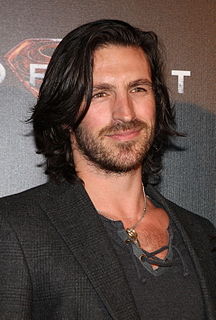A Quote by Jessica Savitch
In real life, events seem much less dramatic.
Related Quotes
This is not remarkable, for, as we know, reality is not a function of the event as event, but of the relationship of that event to past, and future, events. We seem here to have a paradox: that the reality of an event, which is not real in itself, arises from the other events which, likewise, in themselves are not real. But this only affirms what we must affirm: that direction is all. And only as we realize this do we live, for our own identity is dependent upon this principal.
A disturbing possibility exists that the television experience has not merely blurred the distinctions between the real and the unreal for steady viewers, but that by doing so it has dulled their sensitivities to real events. For when the reality of a situation is diminished, people are able to react to it less emotionally, more as spectators.
Now let's move on to the subject of how a real man treats his wife. A real man doesn't slap even a ten-dollar hooker around, if he's got any self-respect, much less hurt his own woman. Much less ten times over the mother of his kids. A real man busts his ass to feed his family, fights for them if he has to, dies for them if he has to. And he treats his wife with respect every day of his life, treats her like a queen - the queen of the home she makes for their children.
We seem to live in a world where forgetting and oblivion are an industry in themselves and very, very few people are remotely interested or aware of their own recent history, much less their neighbors'. I tend to think we are what we remember, what we know. The less we remember, the less we know about ourselves, the less we are. (Interview with Three Monkeys Online, October 2008)

































